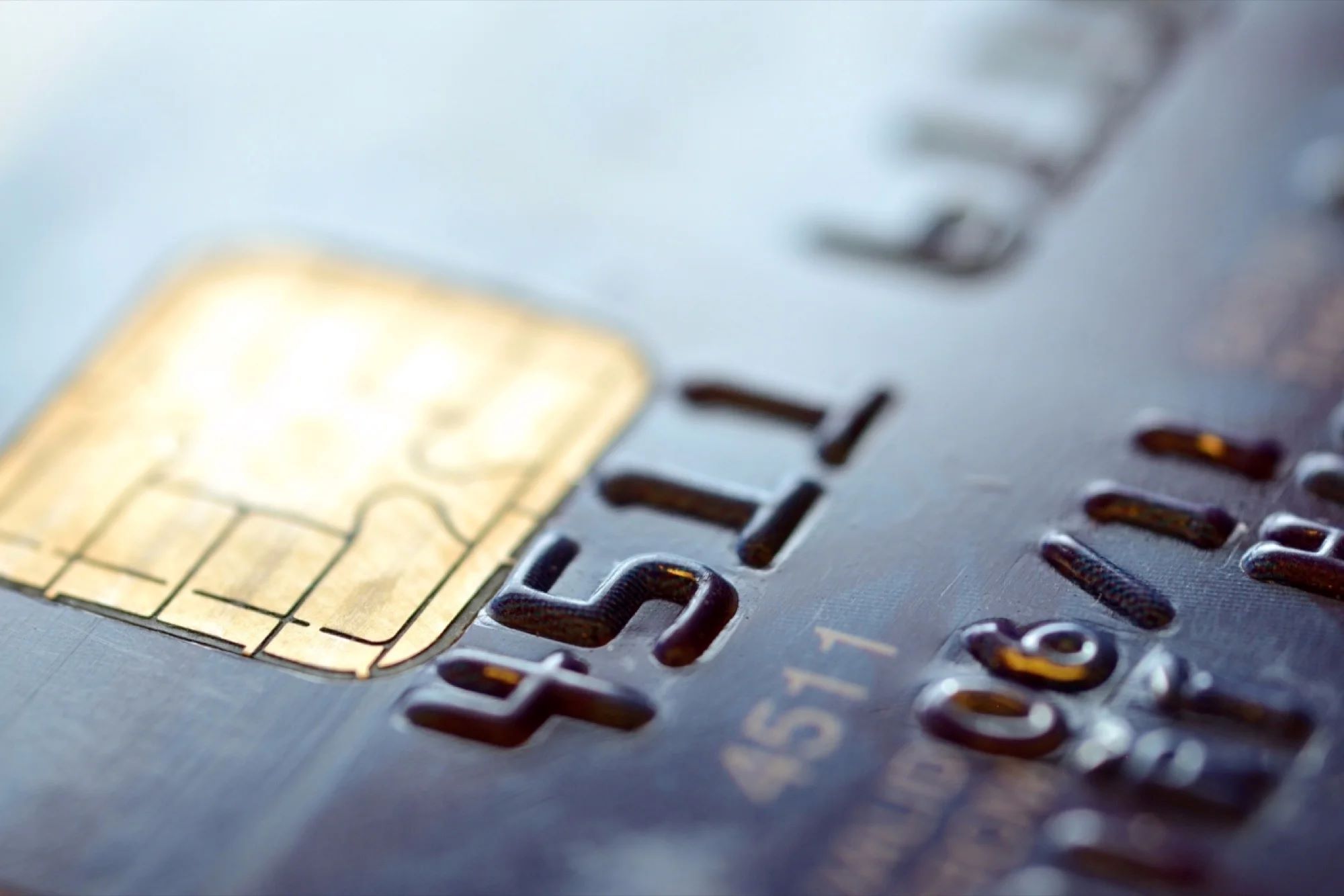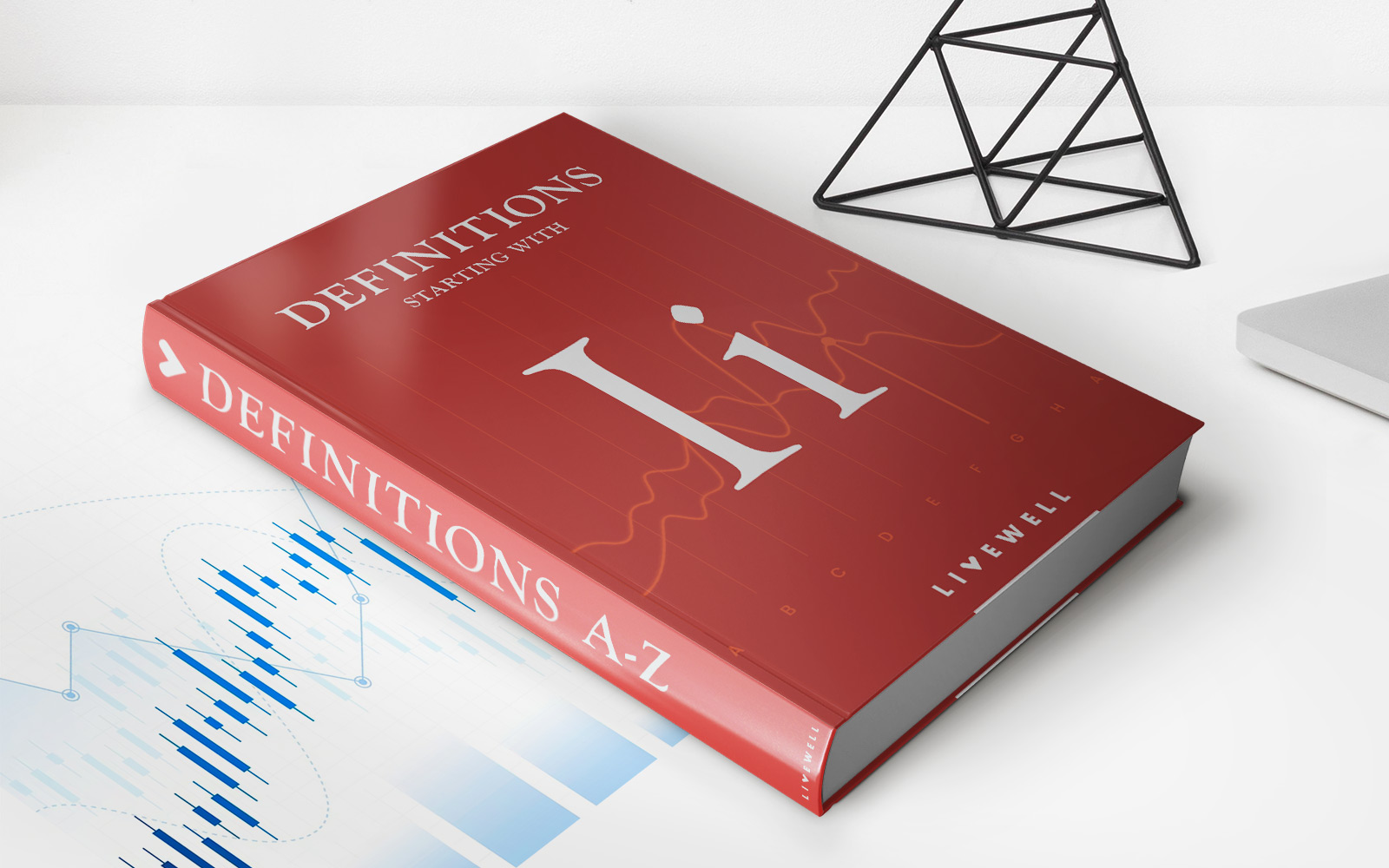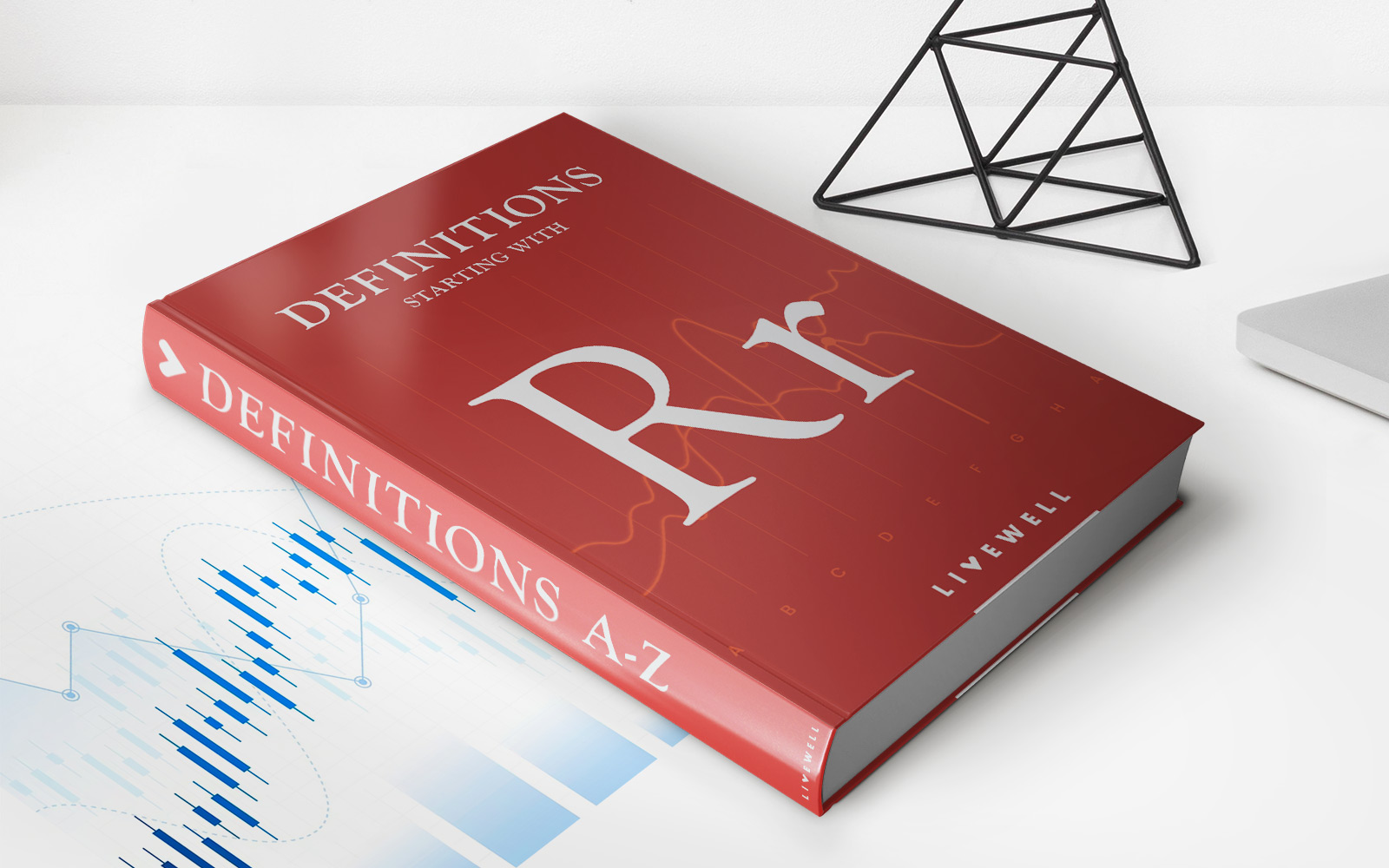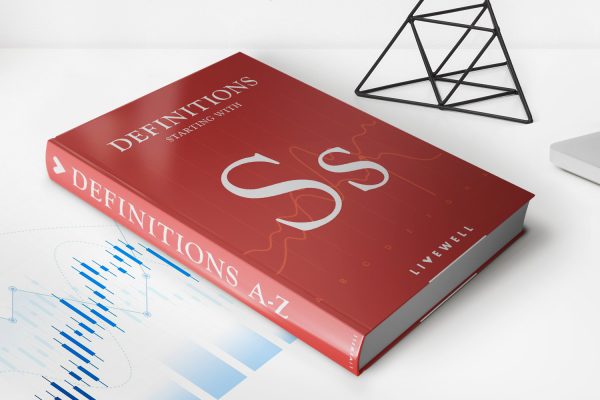

Finance
What Is Credit Card Debt Relief
Modified: December 30, 2023
Learn about credit card debt relief and its benefits in managing your finances. Find out how to reduce your financial burden and achieve financial stability with effective strategies.
(Many of the links in this article redirect to a specific reviewed product. Your purchase of these products through affiliate links helps to generate commission for LiveWell, at no extra cost. Learn more)
Table of Contents
- Introduction
- Understanding Credit Card Debt
- Causes of Credit Card Debt
- Types of Credit Card Debt Relief Options
- Credit Card Debt Consolidation
- Debt Settlement for Credit Card Debt
- Credit Counseling for Credit Card Debt
- Bankruptcy for Credit Card Debt Relief
- Pros and Cons of Credit Card Debt Relief Options
- How to Choose the Right Credit Card Debt Relief Option
- How to Avoid Credit Card Debt in the Future
- Conclusion
Introduction
Credit card debt can be a heavy burden on individuals and families, causing financial stress and affecting their overall well-being. With the ease of credit card access and tempting offers, it’s no wonder that many people find themselves grappling with mounting credit card balances. However, there is hope for those caught in the web of credit card debt – credit card debt relief.
Credit card debt relief refers to various strategies and programs aimed at helping individuals manage, reduce, or eliminate their credit card debt. These options can provide much-needed relief by reducing interest rates, restructuring payments, or even forgiving a portion of the outstanding debt.
In this article, we will delve into the world of credit card debt relief, exploring its different forms, the causes of credit card debt, and the pros and cons of each relief option. We will also provide guidance on choosing the right credit card debt relief option for your unique financial situation.
Whether you’re drowning in credit card debt or simply seeking ways to avoid it in the future, this article will equip you with the knowledge and insights to make informed decisions and regain control over your financial life.
Understanding Credit Card Debt
Credit card debt is a type of consumer debt that arises from the use of credit cards to make purchases or pay for goods and services. It occurs when individuals carry a balance on their credit cards by not paying the full amount due each month.
One of the main factors contributing to credit card debt is the high interest rates associated with credit cards. If the balance is not paid in full, interest charges are added, which can quickly accumulate and lead to a significant debt burden.
Moreover, credit card debt is often categorized as revolving debt, which means that individuals have the flexibility to make minimum payments and carry a balance from month to month. While this may seem convenient in the short term, it can result in long-term financial strain due to compounding interest and extended repayment periods.
It’s important to note that credit card debt can have serious consequences on individuals’ financial well-being. It can lower credit scores, making it difficult to secure loans or obtain favorable interest rates in the future. Additionally, excessive credit card debt can lead to stress, anxiety, and even strained relationships.
Understanding the nature of credit card debt is crucial when it comes to seeking appropriate relief options. By gaining insights into the causes of credit card debt and the available solutions, individuals can make informed decisions to tackle their debt and regain financial stability.
Causes of Credit Card Debt
Credit card debt can arise from a variety of factors, and understanding the underlying causes is essential in order to address and prevent it. Here are some common reasons why individuals find themselves drowning in credit card debt:
- Unplanned Expenses: Unexpected medical bills, car repairs, or home maintenance can quickly accumulate and lead to the use of credit cards to cover these expenses.
- Excessive Spending: Overspending on discretionary items such as dining out, shopping, or entertainment without considering one’s financial capacity can contribute to credit card debt.
- Lack of Financial Literacy: Many people lack proper knowledge of budgeting, saving, and managing their finances effectively, leading to poor financial decision-making and reliance on credit cards.
- Job Loss or Reduced Income: Sudden unemployment or a significant decrease in income can force individuals to rely on credit cards for everyday expenses and make it challenging to keep up with payments.
- Minimum Payment Trap: Paying only the minimum required payment on credit card balances can result in a never-ending cycle of debt, as the majority of the payment goes towards interest rather than reducing the principal amount owed.
- High Interest Rates: Credit cards typically come with high-interest rates, which can make it difficult for individuals to keep up with payments and pay off their balances in a timely manner.
- Lack of Emergency Savings: Without a financial safety net, individuals may resort to credit cards when faced with unexpected emergencies or financial hardships.
It is important to recognize the causes of credit card debt to address the root issues and make necessary changes in spending habits and financial management. By addressing these causes, individuals can take proactive steps towards reducing or eliminating their credit card debt and preventing it from recurring in the future.
Types of Credit Card Debt Relief Options
When it comes to credit card debt relief, there are several options available to individuals facing financial strain. Each option has its own advantages, disadvantages, and eligibility requirements. Here are some common types of credit card debt relief options:
- Credit Card Debt Consolidation: This involves combining multiple credit card debts into a single loan or credit card with a lower interest rate. It simplifies repayment by consolidating the debts into one monthly payment.
- Debt Settlement: Debt settlement involves negotiating with creditors to accept a lump sum payment that is less than the total amount owed. This option can significantly reduce the overall debt burden.
- Credit Counseling: Credit counseling involves working with a certified professional who helps individuals create a budget, develop a debt management plan, and negotiate with creditors for lower interest rates or waived fees.
- Bankruptcy: Bankruptcy is typically considered a last resort option. It allows individuals to discharge or reorganize their debts through a court-supervised process. However, it can have long-lasting negative effects on credit and should only be considered in extreme circumstances.
It’s important to note that not all credit card debt relief options are suitable for everyone. The choice of the right option depends on various factors such as the amount of debt, income, credit score, and personal financial goals.
Exploring these options, seeking professional guidance when necessary, and carefully weighing the pros and cons can help individuals make an informed decision about which credit card debt relief option is most appropriate for their specific circumstances.
Credit Card Debt Consolidation
Credit card debt consolidation is a popular option for individuals who have multiple credit card debts and want to simplify their repayment process. It involves combining all outstanding credit card balances into a single loan or transferring them to a new credit card with a lower interest rate.
The main goal of credit card debt consolidation is to reduce the interest rates and monthly payments, making it more manageable for individuals to pay off their debts. Here are a few key things to know about credit card debt consolidation:
- Lower Interest Rates: One of the primary benefits of debt consolidation is the potential for obtaining a lower interest rate compared to what you were paying on your credit cards. This can save you money in interest charges over the life of the consolidated loan.
- Simplified Repayment: With debt consolidation, you only have to make a single monthly payment towards the consolidated loan, rather than keeping track of multiple credit card payments. This can make it easier to manage your finances and stay organized.
- Extended Repayment Terms: Debt consolidation may provide the option to extend the repayment period, resulting in lower monthly payments. While this can provide immediate relief, it’s important to consider the total cost of borrowing over the extended term.
- Types of Consolidation: There are different ways to consolidate credit card debt, including personal loans, balance transfer credit cards, and home equity loans or lines of credit. Each option has its own eligibility requirements, fees, and potential impacts on credit.
- Considerations: Before opting for credit card debt consolidation, it’s important to carefully review the terms and conditions, interest rates, fees, and any potential impact on your credit score. It’s also essential to address the underlying issues that led to accumulating credit card debt to avoid falling back into the same cycle in the future.
Debt consolidation can be a valuable tool to simplify repayment and potentially reduce the overall cost of credit card debt. However, it’s crucial to weigh the benefits and drawbacks, explore different consolidation options, and seek professional advice if needed to determine if credit card debt consolidation is the right solution for your financial situation.
Debt Settlement for Credit Card Debt
Debt settlement is a credit card debt relief option that involves negotiating with creditors to accept a lump sum payment that is less than the total amount owed. It is typically pursued by individuals who are unable to make their minimum monthly payments and are facing financial hardships.
Here are some key points to understand about debt settlement for credit card debt:
- Negotiation Process: Debt settlement requires negotiating with creditors to reach an agreement on a reduced payoff amount. This negotiation is often facilitated by a debt settlement company or a credit counselor.
- Reduced Debt Amount: Through the negotiation process, creditors may agree to accept a lump sum payment that is significantly lower than the total amount owed. This can provide individuals with a substantial reduction in their debt burden.
- Impact on Credit Score: It’s important to note that debt settlement can have a negative impact on credit scores. This is because settling for less than the full amount owed is seen as a negative event by credit reporting agencies. However, the impact is generally less severe than that of bankruptcy.
- Debt Settlement Companies: Debt settlement can be complex, and some individuals choose to work with debt settlement companies or credit counseling agencies to navigate the negotiation process. It’s advisable to research and choose reputable organizations with a track record of success.
- Tax Consequences: It’s essential to be aware that forgiven debt may be considered taxable income by the IRS. It’s recommended to consult with a tax professional regarding any potential tax implications before pursuing debt settlement.
- Considerations: Debt settlement is not suitable for everyone and should be carefully evaluated. It is typically most effective for individuals facing significant financial hardship who are unable to pay their debts in full. It’s crucial to consider the long-term consequences, the potential impact on credit, and explore alternative options before pursuing debt settlement.
Debt settlement can provide individuals with a way to reduce their credit card debt and achieve financial relief. However, it’s important to approach this option with caution, thoroughly understand the process, weigh the potential consequences, and seek professional guidance when needed.
Credit Counseling for Credit Card Debt
Credit counseling is a service offered by certified professionals who assist individuals in managing their credit card debt and improving their overall financial situation. It involves working with a credit counselor to develop a personalized plan for debt repayment and financial management.
Here are some key points to understand about credit counseling for credit card debt:
- Financial Assessment: Credit counselors conduct a thorough review of an individual’s financial situation, including income, expenses, debts, and credit history. This assessment helps them understand the individual’s unique challenges and propose appropriate solutions.
- Budgeting and Financial Education: Credit counselors provide guidance on creating a realistic budget that aligns with an individual’s income and expenses. They also offer financial education to help individuals develop better money management habits and make informed financial decisions.
- Debt Management Plan (DMP): In some cases, credit counselors may assist individuals in setting up a Debt Management Plan. This involves negotiating with creditors on behalf of the individual to secure lower interest rates, waived fees, and a structured repayment plan.
- Communication with Creditors: Credit counselors act as an intermediary between individuals and their creditors. They handle communication with creditors, addressing any concerns, and negotiating on behalf of the individual to establish more favorable terms.
- Effect on Credit Score: Participating in credit counseling and enrolling in a Debt Management Plan may have a temporary impact on an individual’s credit score. However, as individuals consistently make timely payments and reduce their debt, their credit score can gradually improve.
- Accredited Credit Counseling Agencies: It’s crucial to choose a reputable and accredited credit counseling agency to ensure quality service. Look for agencies affiliated with organizations such as the National Foundation for Credit Counseling (NFCC) or the Financial Counseling Association of America (FCAA).
- Costs: Credit counseling services may involve fees, but many nonprofit agencies offer low-cost or free counseling options. It’s important to inquire about the costs and fees associated with the services before enrolling.
Credit counseling can be an effective tool for individuals struggling with credit card debt. It provides education, guidance, and resources to help individuals regain control of their finances and work towards becoming debt-free.
Remember to research and choose a reputable credit counseling agency, discuss the potential impact on credit, and carefully consider the fees and costs associated with the services before committing to credit counseling for credit card debt.
Bankruptcy for Credit Card Debt Relief
Bankruptcy is a legal process that offers individuals struggling with overwhelming debt a chance to obtain relief and a fresh financial start. It is typically considered a last resort option for individuals facing severe financial hardship, including substantial credit card debt.
Here are some key points to understand about bankruptcy for credit card debt relief:
- Types of Bankruptcy: There are two common forms of bankruptcy for individuals – Chapter 7 and Chapter 13 bankruptcy. Chapter 7 involves the liquidation of assets to repay creditors, while Chapter 13 involves creating a structured repayment plan over a specified period.
- Automatic Stay: Once an individual files for bankruptcy, an automatic stay goes into effect. This prevents creditors from pursuing collection activities, such as wage garnishment or foreclosure, giving the individual temporary relief from the demands of debt repayment.
- Debt Discharge: Depending on the type of bankruptcy filed, eligible credit card debt may be discharged, meaning the individual is no longer obligated to repay it. However, certain types of debts, such as student loans or tax debts, may not be dischargeable.
- Impact on Credit: Bankruptcy can have a significant impact on an individual’s credit score and credit history. It remains on a credit report for several years and may make it challenging to secure future credit or loans at favorable terms. However, credit can be rebuilt over time with responsible financial management.
- Complexity and Legal Support: Bankruptcy is a complicated legal process that requires careful consideration and professional guidance. It is advisable to consult with a bankruptcy attorney who can provide the necessary expertise and guidance throughout the process.
- Eligibility: Eligibility for bankruptcy depends on various factors, including income, assets, and the ability to repay debts. It’s important to consult with an attorney or a bankruptcy professional to determine if bankruptcy is a viable option for credit card debt relief.
Bankruptcy should be considered only as a last resort for individuals overwhelmed by credit card debt and other financial obligations. It is critical to understand the potential consequences, seek legal advice, and explore alternative options before proceeding with bankruptcy.
Remember, bankruptcy is a complex and life-altering decision, and it should only be pursued after careful consideration of individual financial circumstances and consultation with a qualified professional.
Pros and Cons of Credit Card Debt Relief Options
When it comes to credit card debt relief, it’s important to carefully consider the pros and cons of each available option. Here are some advantages and disadvantages of common credit card debt relief options:
Credit Card Debt Consolidation
- Pros:
- Streamlined repayment process with a single monthly payment.
- Potential for lower interest rates and reduced monthly payments.
- Ability to simplify financial management and stay organized.
- Cons:
- Risk of acquiring more debt if spending habits are not addressed.
- Extended repayment terms may result in higher overall interest paid.
- Additional fees and charges associated with certain consolidation methods.
Debt Settlement
- Pros:
- Potential for significant reduction in total debt amount.
- Opportunity to negotiate a more manageable payment plan.
- Chance for a faster resolution compared to traditional repayment methods.
- Cons:
- Negative impact on credit score and credit history.
- Possible tax consequences for forgiven debt.
- Potential for predatory debt settlement companies or scams.
Credit Counseling
- Pros:
- Access to expert guidance, budgeting, and financial education.
- Assistance in developing a customized debt management plan.
- Potential for negotiating lower interest rates and waived fees.
- Cons:
- Enrollment in a Debt Management Plan may have temporary credit score impact.
- Requires commitment and discipline to stick to the plan.
- Costs involved, although nonprofit agencies may offer affordable options.
Bankruptcy
- Pros:
- Potential for a fresh financial start and debt discharge.
- Immediate relief from creditor collection activities.
- Chance to rebuild credit over time with responsible financial management.
- Cons:
- Long-lasting negative impact on credit score and credit history.
- Costs associated with filing for bankruptcy, including attorney fees.
- Public record of bankruptcy filing, which may affect future financial opportunities.
It’s important to carefully consider the pros and cons of each credit card debt relief option and evaluate them in the context of your specific financial situation. No single solution is suitable for everyone, and it’s crucial to explore alternatives, seek professional advice, and choose the option that aligns best with your goals and circumstances.
How to Choose the Right Credit Card Debt Relief Option
Choosing the right credit card debt relief option can have a significant impact on your financial future. Here are some key considerations to help you determine the best option for your individual circumstances:
- Evaluate Your Financial Situation: Start by assessing your current financial situation, including your income, expenses, and the total amount of credit card debt you owe. This will help you understand the severity of your debt and determine which relief options are realistic and feasible for you.
- Understand Your Goals: Clarify what you hope to achieve through debt relief. Are you looking to reduce monthly payments, eliminate debt entirely, or rebuild your credit? Understanding your goals will help guide your decision-making process.
- Research Available Options: Thoroughly research the different credit card debt relief options available, such as debt consolidation, debt settlement, credit counseling, or bankruptcy. Understand the eligibility requirements, potential benefits, drawbacks, and the impact on your credit.
- Consider Professional Guidance: Seek advice from financial professionals, such as credit counselors or bankruptcy attorneys, who can provide personalized recommendations based on your unique financial situation. They can help you understand the pros and cons of each option and guide you towards the most suitable choice.
- Weigh the Impact on Credit: Consider the potential short-term and long-term impact on your credit score and credit history. Understand that certain options, like bankruptcy, may have a more significant and longer-lasting negative effect on your credit compared to others.
- Assess Affordability and Costs: Evaluate the affordability and associated costs of each debt relief option. Consider any fees, interest rates, or monthly payments that may be involved. Compare these costs with your ability to comfortably manage them within your budget.
- Consider Long-Term Financial Health: Evaluate how each option aligns with your long-term financial health and goals. Look beyond immediate relief and focus on achieving sustainable financial stability in the future. This may involve addressing spending habits, budgeting, and developing good financial management skills.
- Seek Multiple Opinions: Consider seeking second opinions and advice from different reputable sources. This can help you gain different perspectives and ensure you make an informed decision that considers all aspects of your financial situation.
Remember, choosing the right credit card debt relief option requires careful consideration and thorough understanding of your financial circumstances. By assessing your goals, researching available options, seeking professional advice, and weighing the potential impact, you can make an informed decision that sets you on a path to achieve debt relief and long-term financial well-being.
How to Avoid Credit Card Debt in the Future
While credit card debt relief options can provide much-needed relief for those already burdened by debt, it’s equally important to take proactive steps to avoid getting into credit card debt in the future. Here are some strategies to help you steer clear of credit card debt:
- Create a Budget: Establish a detailed budget that outlines your income, expenses, and savings goals. This will help you understand your financial limits and ensure you live within your means.
- Track Your Spending: Keep a record of your expenses to identify areas where you can cut back or make adjustments. This will help you make informed decisions about your spending habits and avoid unnecessary purchases.
- Build an Emergency Fund: Set aside funds specifically for unexpected expenses or emergencies. Having a safety net will help you avoid having to rely on credit cards when faced with unforeseen circumstances.
- Pay Bills on Time: Make it a priority to pay your bills, including credit card payments, on time. Late payment fees and high-interest charges can quickly accumulate and lead to credit card debt.
- Avoid Impulse Purchases: Before making a purchase, take a moment to evaluate whether it is a necessity or a want. Avoid impulsive buying and give yourself time to consider the potential impact on your finances.
- Limit Credit Card Usage: Be mindful of how frequently you use credit cards. Consider using cash or a debit card for everyday expenses to help limit your credit card spending.
- Pay in Full: Whenever possible, strive to pay off your credit card balance in full each month. This will prevent interest charges from accruing and help you avoid carrying a balance.
- Monitor Your Credit: Regularly review your credit card statements, credit reports, and credit scores to stay aware of your financial status and detect any suspicious activity or errors.
- Seek Financial Education: Expand your financial knowledge by reading books, attending workshops, or seeking professional advice. Understanding personal finance can empower you to make better financial decisions and avoid falling into credit card debt.
- Practice Self-Discipline: Develop good financial habits and exercise self-discipline when it comes to spending. Differentiate between needs and wants, and prioritize long-term financial goals over short-term gratification.
By implementing these strategies and adopting responsible financial habits, you can significantly reduce the risk of accumulating credit card debt in the future. It’s important to remember that financial well-being is a continuous journey that requires ongoing diligence and discipline.
Conclusion
Credit card debt can be a significant burden, causing stress and impacting one’s overall financial well-being. Fortunately, there are several credit card debt relief options available to help individuals regain control of their finances and work towards a debt-free future.
Whether it’s through credit card debt consolidation, debt settlement, credit counseling, or bankruptcy, each option has its own advantages and considerations. It’s crucial to thoroughly assess your financial situation, goals, and the potential impact of each relief option before making a decision.
Additionally, it’s important to understand the underlying causes of credit card debt and take proactive steps to avoid it in the future. By budgeting, tracking spending, practicing self-discipline, and building an emergency fund, individuals can minimize the risk of falling into credit card debt again.
Remember, credit card debt relief is a journey that requires patience, diligence, and ongoing financial management. Seeking professional guidance, staying informed about personal finance, and making responsible financial decisions are key to achieving long-term financial well-being.
Ultimately, the path to credit card debt relief and financial freedom is unique to each individual. By taking the necessary steps and choosing the right credit card debt relief option for your specific circumstances, you can regain control over your financial life and pave the way towards a brighter financial future.














